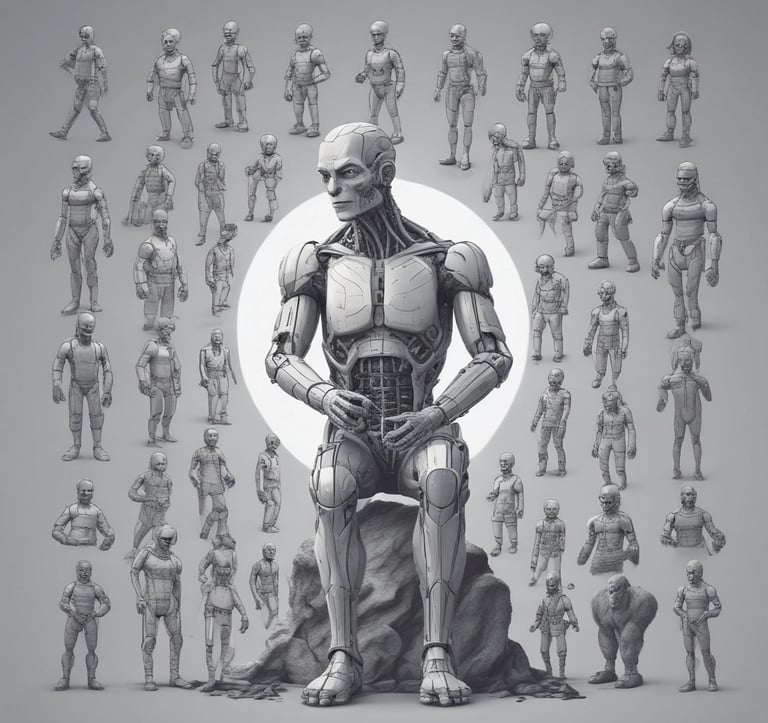10 Ways Humans Can Not Be Replaced by AI
AI can't do everything so humanity is safe for now


Introduction
As technology continues to advance, many people find themselves apprehensive about the role of artificial intelligence (AI) in our daily lives. While AI offers numerous benefits, it's essential to recognize the unique capabilities of humans that cannot be replicated by machines. In this blog post, we will explore ten ways humans can not be replaced by AI, reassuring those concerned about the future of work and creativity.
Emotional Intelligence
One of the most significant distinctions between humans and AI is emotional intelligence. Humans have the ability to understand and manage emotions, both their own and those of others. This emotional depth allows for empathy, compassion, and nuanced social interactions, which AI currently cannot replicate. In roles requiring emotional connections, such as counseling or therapy, human touch is irreplaceable.
Creative Thinking
While AI can generate art, music, and written content, it does so based on existing patterns and data. Human creativity, on the other hand, is fueled by personal experience, intuition, and imagination. Artists, writers, and musicians leverage their unique perspectives to create original works that resonate on a deeply personal level. This kind of innovative thinking is intrinsic to human nature and remains outside the reach of AI.
Complex Problem-Solving
Humans excel at solving complex problems, especially in ambiguous situations where not all variables are known. The ability to think critically, assess risk, and create practical solutions under pressure is a skill that AI struggles to master. Professionals in fields like law, medicine, and engineering often face unpredictable challenges that require human judgment and adaptability.
Ethical and Moral Decision-Making
Ethics and morality are deeply human constructs, shaped by culture, values, and personal beliefs. In many cases, decisions made in business, healthcare, and society at large require moral considerations, which machines cannot fully comprehend. Human beings navigate these ethical dilemmas by relying on their conscience and societal norms, an area where AI continues to fall short.
Building Relationships
Relationships are fundamental to human existence, and they thrive on trust, rapport, and understanding. While AI can simulate conversations and automate customer service, it cannot truly connect with individuals on a personal level. In professions such as teaching, nursing, and sales, building genuine relationships is critical, highlighting the irreplaceable role of humans in these settings.
Adaptability and Learning
Humans are inherently adaptable, continuously learning from their environment and experiences. Unlike AI, which requires extensive programming and data to learn, people can quickly adjust their behavior based on new information or changed circumstances. This ability to pivot and embrace change is essential in many aspects of life, from careers to personal growth.
Conclusion
In conclusion, while AI is transforming various industries and functions, humans continue to offer unique capabilities that machines simply cannot replicate. From emotional intelligence and creative thinking to complex problem-solving and ethical decision-making, these intrinsic qualities underscore the value of human beings in our rapidly evolving world. Instead of fearing AI, we should recognize the complementary roles humans and machines can play together.

Your Opinion? Let us know!
We’re here to help you enhance your life with AI.